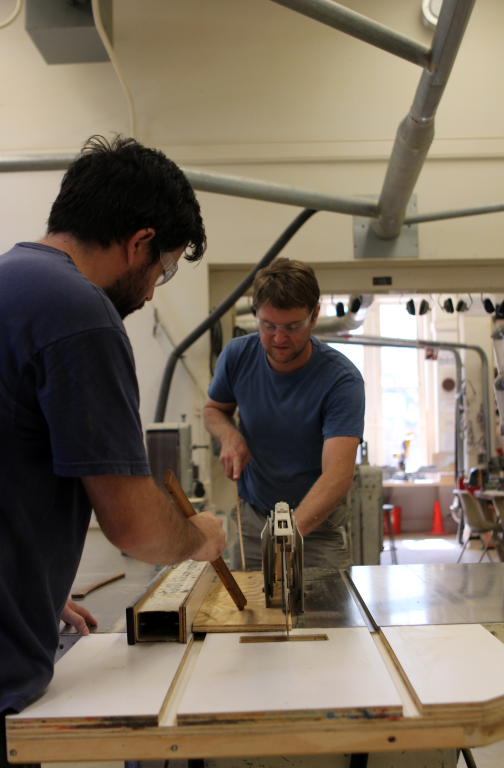Safety procedures were the main concern at the first annual Student Shop Managers Conference. Eddins, an assistant arts technician, and Patrick O’Sullivan, senior history technician, attended the conference last week. Hosted by the Pratt School of Engineering at Duke University, the conference provided an opportunity for managers and directors from universities across the country to discuss safety procedures and developing technologies.
“It was definitely a good conference to go to for anyone involved in student shops or labs because they’re developing safety standards around the country in different shops,” Eddins said. “Everyone was able to bring up concerns and say the problems they have.”
While the student workshops are in good shape, Eddins said, there’s always room for both error and improvement. He said they’re trying to improve on the legacy of the previous shop supervisor, Mark Stevenson, who never had any major accidents. Decreasing the likelihood of accidents and educating students on how the machines work is their goal, Eddins said.
At every school, an Environmental Health and Safety department decides safety guidelines, but Eddins insists these rules are the bare minimum and safety development is a never- ending process.
“The whole safety design of every student lab shop is in continuous improvement,” he said. “There’s always something to be done. You’re never a 100 percent safe with these things.”
With around 70 shop managers in attendance, Eddins said the conference offered networking opportunities for the University’s Art Department with other colleges. Covering everything from drill presses to drones, Eddins said, the conference taught them how others set up their shops and safety protocols. O’Sullivan said safety was a major concern for them.
“We try to solve problems before they come up,” O’Sullivan said. “This conference shows that others across the country are trying to do the same.”
Vendors at the conference sold new equipment such as tool guards designed to prevent accidents. One item Eddins and O’Sullivan are planning to buy for the shop is the safety gate power cord plug, which stops a belt sander, or palm sander, from activating if someone left it on before plugging it up.
“If the machine is accidentally on, this will not allow it to start,” Eddins said. “You turn it off and turn it on again, it’ll start, so it’s kind of intelligent.”
The conference touched on technology that will change both student workshops and art departments such as 3-D printers and drones. Ten years ago, Eddins said, none of these technologies would have been available. When Eddins was in college, he said 3-D printers cost millions of dollars, but now, they are more cheaply available.
Eddins and O’Sullivan are planning to attend next year’s conference at the Georgia Institute of Technology. For their jobs, the conference will help improve the ways they develop their lessons and how they inform students.









